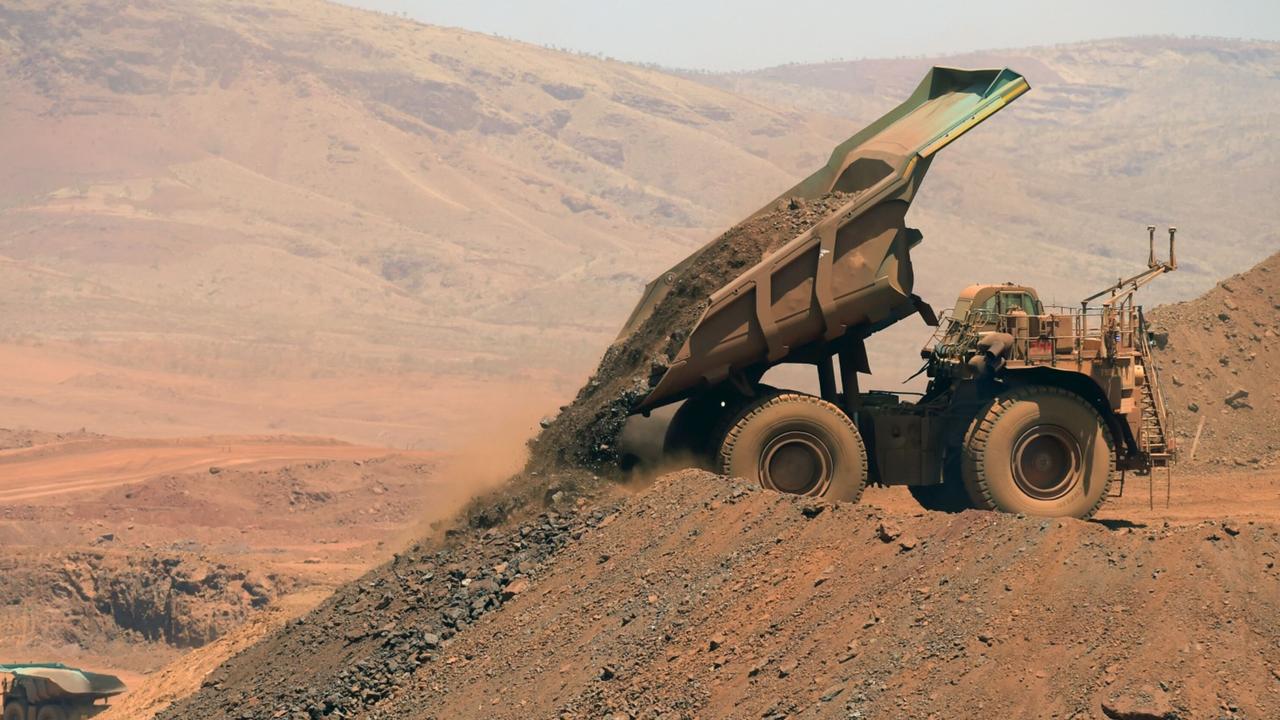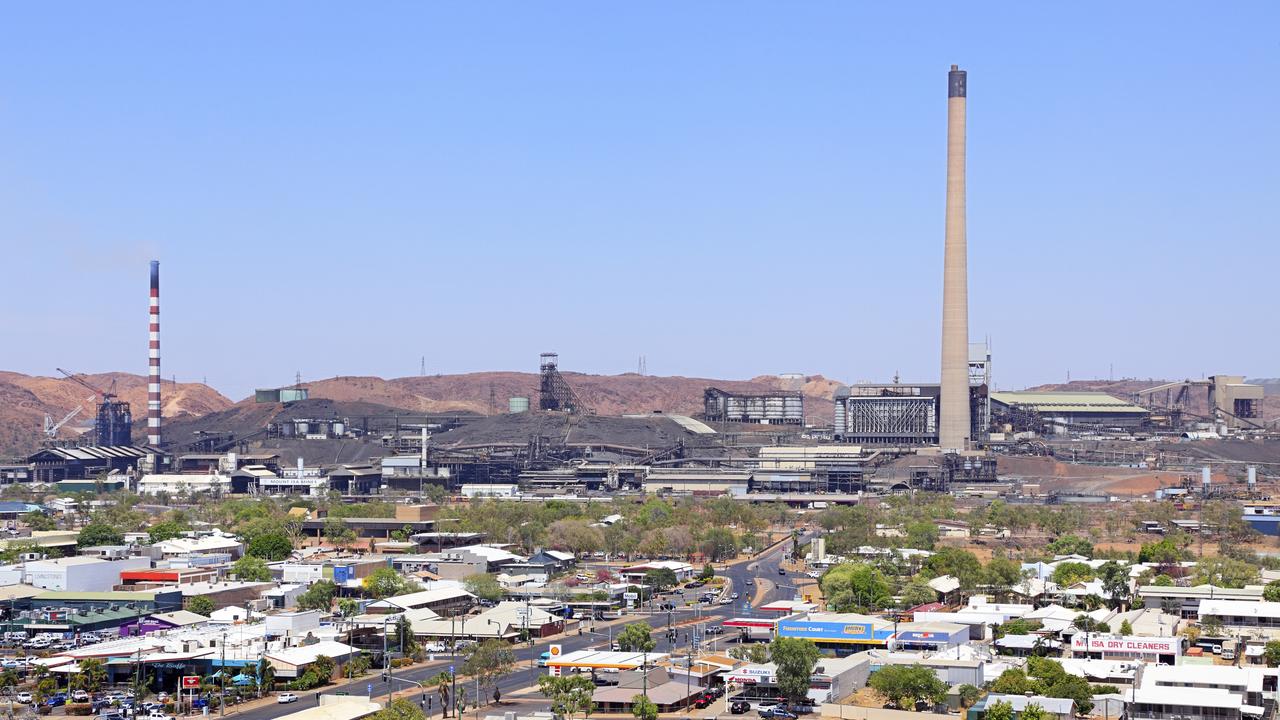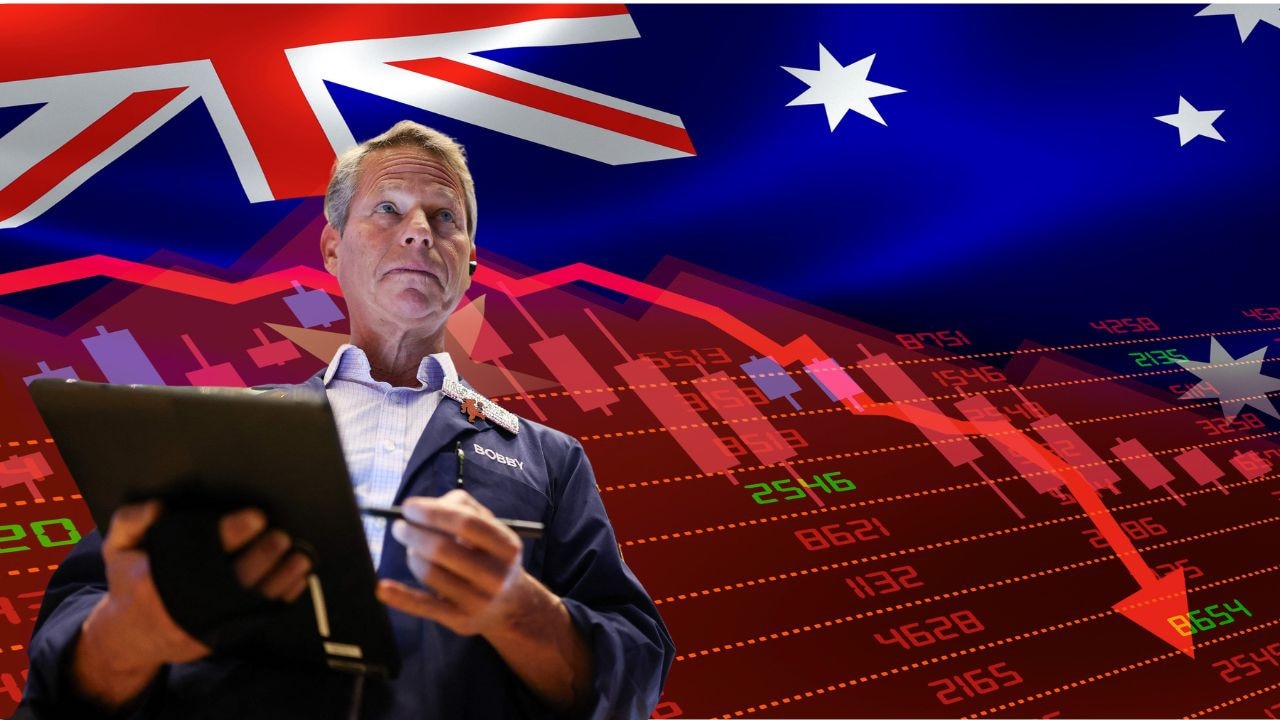Apple shares dive more than 9 per cent on Trump’s trade war
More than $470bn has been blasted off Apple’s market value - the largest one-day wipeout ever; Aussies risk potentially paying more for iPhones.
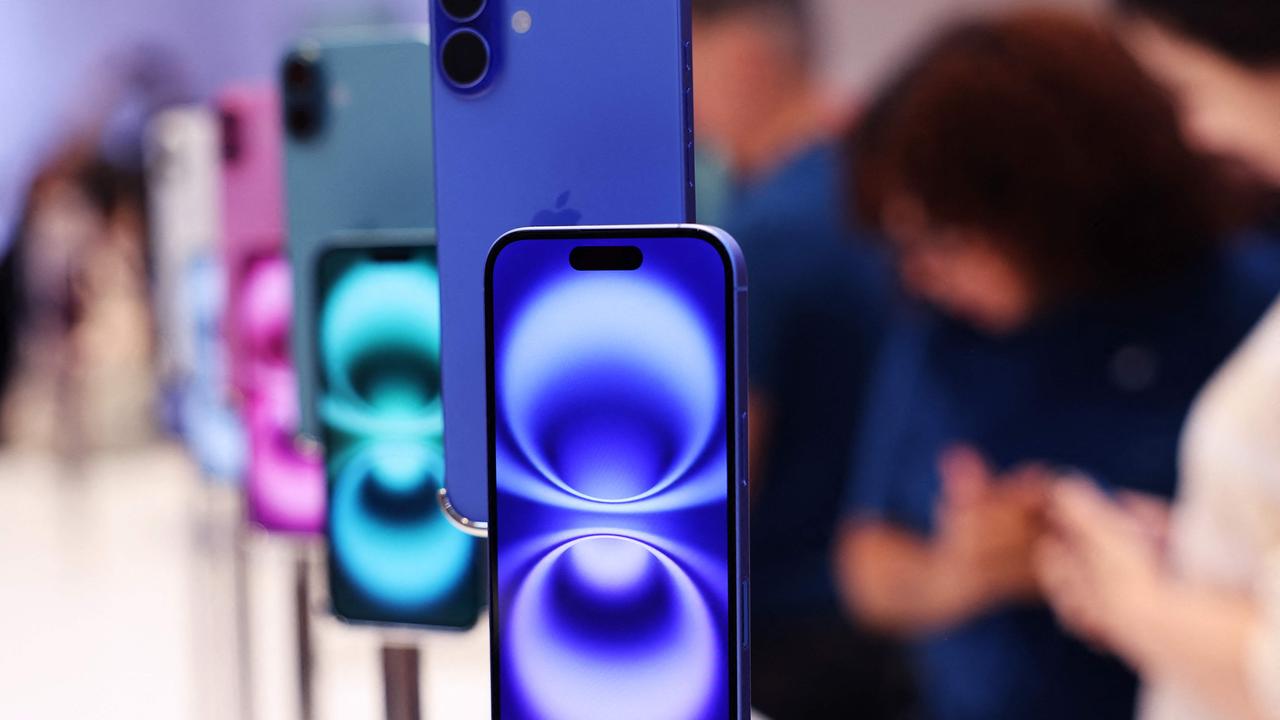
Business
Don't miss out on the headlines from Business. Followed categories will be added to My News.
Apple has emerged as one of the early biggest losers in Donald Trump’s global trade war, with its shares plummeting 9.25 per cent overnight, blasting more than $US300bn ($474bn) off its market value - the largest one-day valuation wipeout on record.
And Australians risk more pain to the hip pocket, potentially paying more for iPhones after Trump announced he would slap a new 34 per cent tax on Chinese imports.
The move slashed Apple’s market capitalisation from $US3.36 trillion to $US3.05 trillion, leading a tech sell-off as Trump effectively declared an end to globalisation in his quest to “Make America Great Again”.
Why does this matter for Apple? The Cupertino-headquartered company’s main contract manufacturer is Taiwan-headquartered FoxConn, and most of its factories are in mainland China.
In other words, Mr Trump’s “liberation day” tariffs have hit one of the symbols of American tech innovation and consumer luxury: the iPhone.
If you’ve ever looked at the back of an iPhone box, you’ll see at the top it’s designed in California and if you scroll down to the bottom there is the disclaimer: “Assembled in China.”
This is what matters to Mr Trump. It doesn’t matter where Apple completes its research and development or where it sources its other components – for example its gyroscope, which tracks movement, comes from Switzerland.
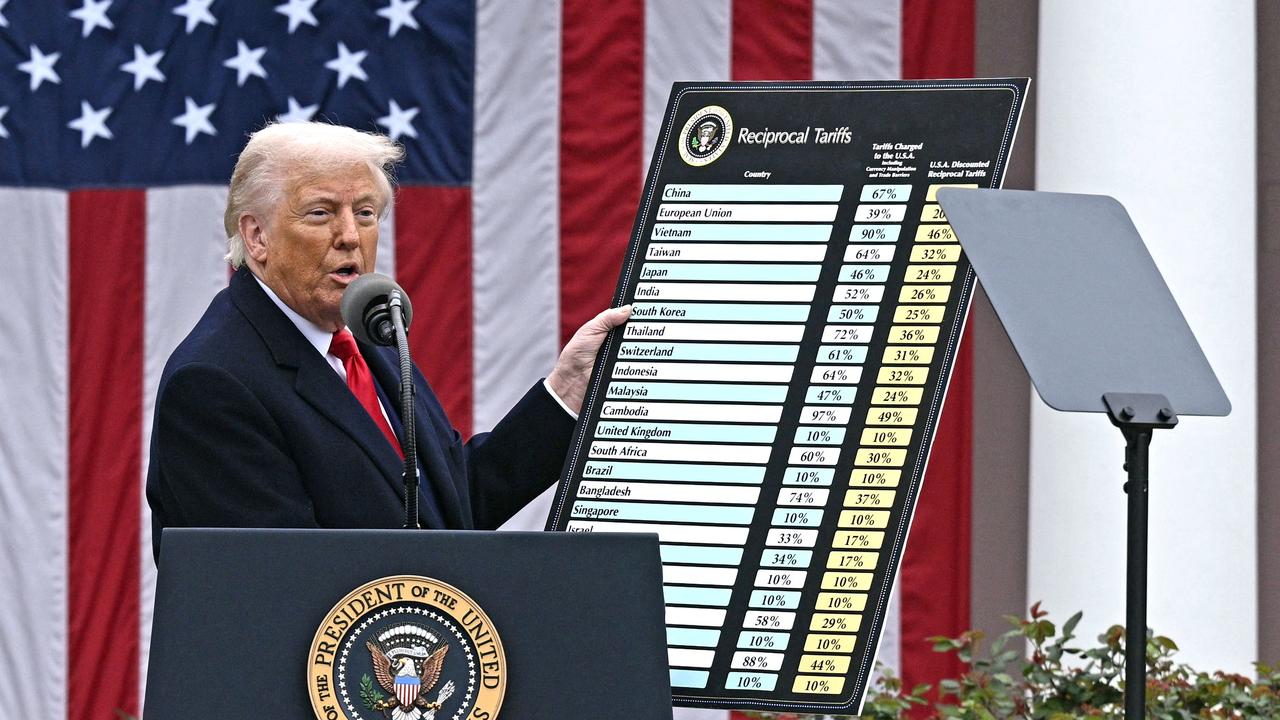
Wherever it is finished, packed into its box and then onto a ship, there is Mr Trump’s new tax, and China is the biggest perceived thorn in his side to making America great again.
Mr Trump warned that, for decades, America had been “looted, pillaged and raped” and that other nations had become rich and powerful at the expense of the United States – with China the worst offender.
It remains to be seen how Apple will manage this. In the past year it has been cutting or freezing the prices of its key products, including its iPhones, Macs and watches.
While imports on America are charged the new tariffs, companies like Apple largely market their products globally based on US pricing to ensure relative consistency, meaning Australians also risk paying more.
But Apple is particularly vulnerable to iPhones sales, which generate more than half its revenue, selling at a rate of about seven a second.
If the iPhone division was its own company, it would most likely rank in the Fortune 500’s top 30. That’s how big the business is for Apple and why it has become the world’s most valuable company.
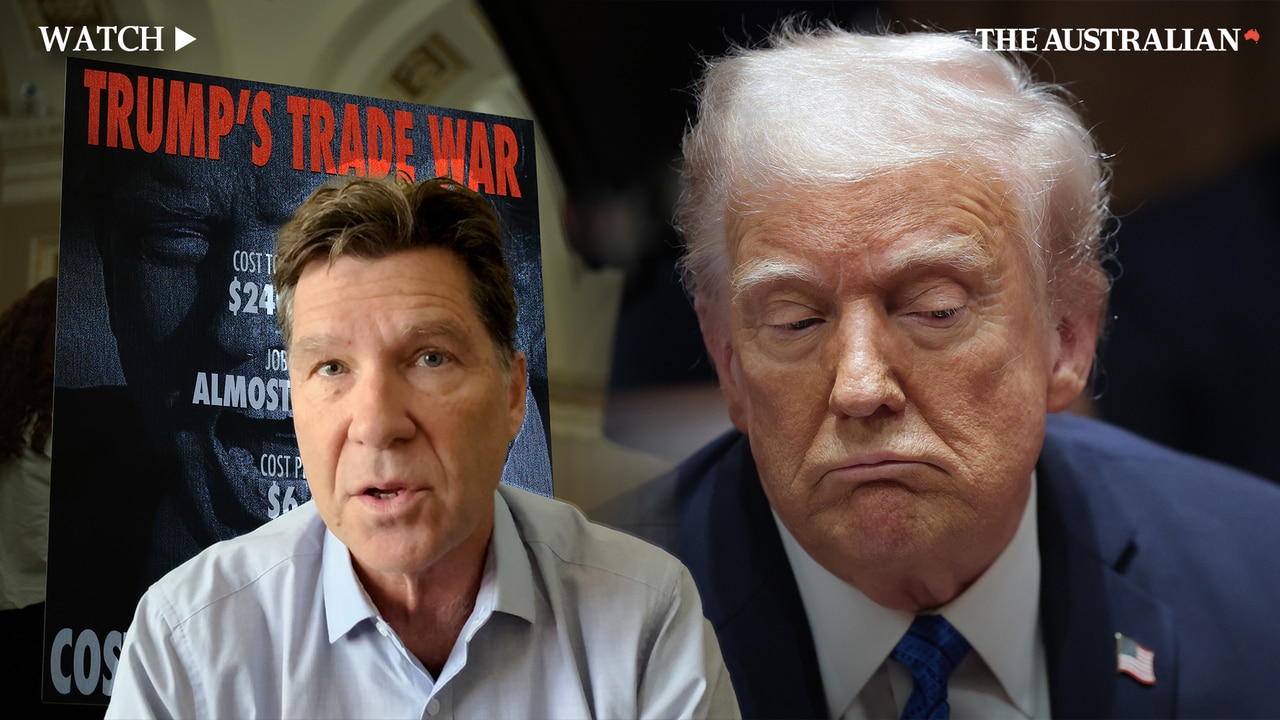
Of course Apple isn’t alone in being inadvertently caught in the US President’s crosshairs. Rival Samsung’s shares fell 2.4 per cent on Thursday. It makes its flagship S25 Series phones in India, which copped a 26 per cent tariff.
Samsung – which together with Apple dominates the global smartphone market to the tune of a combined share of almost 40 per cent – also makes its phones in Vietnam, which was hit with a 46 per cent tariff.
Many economists have criticised Mr Trump’s use of tariffs, arguing that they will increase the cost of goods for American citizens as firms pass on the additional costs. And in a global economy this also means those consumers in other countries, including Australia, that buy American-designed but Chinese-made technology.
And this causes a headache for central banks, including the RBA, in their fight to rein in inflation and ease the cost of living crisis.
BlueBay Asset Management firm, a unit of RBC Global Asset Management, estimated that the new tariffs will push US inflation up 1 per cent, while economic growth will likely slow to 1.5 per cent. The RBA on Tuesday chose to hold interest rates, not following up its February cut.
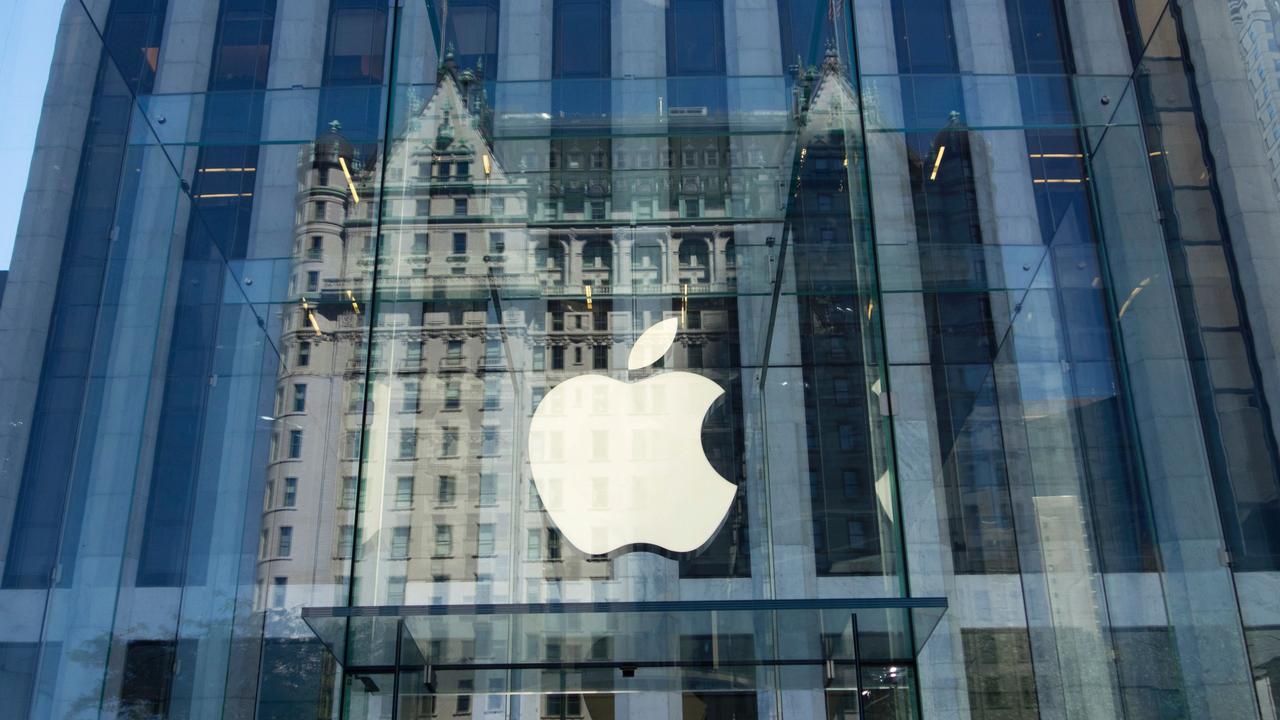
Nicola Charwat, a senior lecturer at Monash University in business law and taxation, said Mr Trump’s framing of the tariffs was problematic and would create a new level of uncertainty.
“The ‘liberation day’ tariffs represent the culmination of the abandonment of multilateralism and the turn to mercantile, power-based trade relations,” Dr Charwat said.
“They are reciprocal in the face of perceived ‘unfairness’ to the US rather than specific economic harms. It appears that Trump or the United States can redefine any trade policy difference as unfairness and reach for tariffs. This gives rise to a high level of uncertainty.”
But Mr Trump is adamant it will spark a new golden age for America – by attracting more manufacturing and creating more jobs in the US. But the only thing that is likely to be golden – at least when it comes to price – is your new iPhone and other consumer electronic devices.
More Coverage
Originally published as Apple shares dive more than 9 per cent on Trump’s trade war




